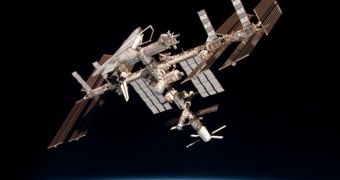Officials at the European Space Agency (ESA) say that it's time for the International Space Station (ISS) to enter new types of uses. They argue that the orbital outpost can now be converted to a testbed for technologies to be used in future space exploration missions.
For the past 10 year or so, the space lab has been used exclusively for conducting scientific research. But now that the $100 billion structure is complete, its uses can be expanded far beyond that. It is the only facility in existence that can provide that kind of support.
Converting the ISS to an orbital testbed could also help NASA, which is planning to move from exploring low-Earth orbit (LEO) to conducting missions to the Moon, Mars and near-Earth objects (NEO) such as large asteroids.
However, the United States do not yet have the necessary equipment to conduct such advanced missions, nor do they have the required technologies. The latter need to be researched thoroughly before deployment, and the ISS provides the perfect setting to do that.
ESA made its position known today, July 27, at a meeting of the Multilateral Coordination Board (MCB), the body that handles operations and planning for the outpost. All agencies involved in the project now need to look for specific technology initiatives to meet the new function.
The MCB is made up of representatives from NASA, ESA, the Canadian Space Agency (CSA), the Russian Federal Space Agency (RosCosmos) and the Japanese Ministry of Education, Culture, Sports, Science and Technology.
“The meeting also discussed standardizing space systems, including the revised International Docking Systems Standard, as well as the Board's effort to gather information on how successfully the Station has been used, the results of which will be published in September,” an ESA press release states.
“Exploitation of the Station's research facilities is already well under way. ESA astronaut Paolo Nespoli performed more than 30 experiments during his six-month MagISStra mission, which ended with his return to Earth in May,” the document adds.
ESA conducted radiation and biological experiments on the ISS, but the results of these studies do not benefit space exploration directly. What the agency is advocating is reaching specifically for this goal.
“ESA experiments on a variety of crew members are providing new insights into the effects of weightlessness on our balance and how we perceive motion and tilt,” the release concludes.

 14 DAY TRIAL //
14 DAY TRIAL //